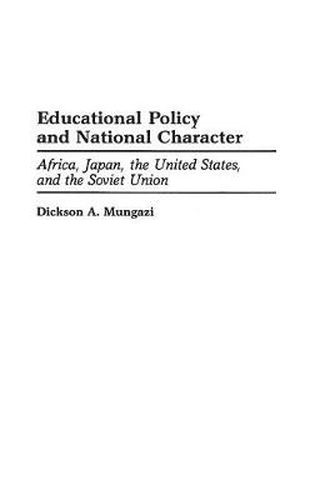Readings Newsletter
Become a Readings Member to make your shopping experience even easier.
Sign in or sign up for free!
You’re not far away from qualifying for FREE standard shipping within Australia
You’ve qualified for FREE standard shipping within Australia
The cart is loading…






This study is an integrated approach to how the problems of education are related to those of national development in Africa, Japan, the United States, and the former Soviet Union. These four were selected because Africa represents the Third World; Japan the emerging powers, the United States, Western democracy, and the Soviet Union the socialist world. The study is based on the assumption that a detailed study of these four countries will help to establish the relationship that exists between the problems of education and those of national development.
Nations are facing problems in their struggle for development because they are unable to resolve problems of education. While socialist nations seem to focus on the development of the state as a condition of seeking the development of the individual, Western nations seek the development of the individual as a condition of national development. That both systems are experiencing serious problems in both education and national development suggests that there must be a reexamination of policy strategies. This book will be of interest to political scientists and students of comparative education.
$9.00 standard shipping within Australia
FREE standard shipping within Australia for orders over $100.00
Express & International shipping calculated at checkout
This study is an integrated approach to how the problems of education are related to those of national development in Africa, Japan, the United States, and the former Soviet Union. These four were selected because Africa represents the Third World; Japan the emerging powers, the United States, Western democracy, and the Soviet Union the socialist world. The study is based on the assumption that a detailed study of these four countries will help to establish the relationship that exists between the problems of education and those of national development.
Nations are facing problems in their struggle for development because they are unable to resolve problems of education. While socialist nations seem to focus on the development of the state as a condition of seeking the development of the individual, Western nations seek the development of the individual as a condition of national development. That both systems are experiencing serious problems in both education and national development suggests that there must be a reexamination of policy strategies. This book will be of interest to political scientists and students of comparative education.